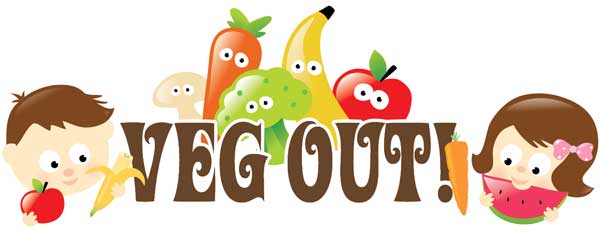If you’ve read anything health-related in the last ten years, you know there have been all sorts of trends when it comes to acceptable eating. Dairy, soy and eggs have all seen their time to shine (or not)…until a new study or “superfood” has hit the scene. But, some things never change. Your mother was right…you should eat your veggies!
While dietitians and nutrition experts vary in their opinions about different aspects of food, they all agree on how vital fruits and vegetables are to good health. And, convincing children that eating vegetables is a good thing feels like a challenge mothers have faced since the dawn of time.
Here are some ways to introduce more produce and make it easier for picky kids to swallow.
Stock up on fruits and veggies whenever there are good deals.
Not only will the low price allow you to buy more, but also if the kids don’t eat everything on their plates, you won’t feel so bad letting something go to waste. (Sad, but true.) Buy what’s in season to ensure quality and a fair price. If you find a low price on a new-to-you vegetable, that’s a good time to try it. Just don’t buy a ton of something you’re not sure the kids will go for – or you might be eating quite a lot of asparagus on your own.
Provide a bottomless fruit and veggie tray.
If you keep a platter stocked with sliced vegetables and fruits, you will find that the kids tend to eat more. Bring it out at snack time and during dinner preparation. It’s amazing how much they’ll munch when they’re hungry and there aren’t less-nutritious snacks around.
Find quick ways to prep your produce.
There are the obvious convenience solutions such as buying baby carrots and prepared veggie trays. You can quickly cut an apple if you slice around the core instead of through it. The same holds true for pears and bell peppers. There might be a slight extra waste that heads to the compost pile, but if more is getting eaten, it’s a fair tradeoff.
Let the kids help.
Kids are more likely to eat what they’ve helped prepare. Plus, you’re giving them a life skill: food preparation.
Cook vegetables in a pleasing manner.
While covering vegetables in a cheesy sauce defeats the purpose of feeding your family healthier foods, there’s no harm in preparing veggies in a new and fresh way. Add sautéed garlic and a little olive oil to steamed veggies in order to boost their flavor. Drizzle on some lemon juice. Seek out recipes that focus on fresh vegetables. A little extra work on side dishes may make them more palatable.
Disguise it.
There are a handful of cookbooks out there that focus on the idea of hiding vegetables and vegetable puree in kid-friendly recipes. Brownies made with spinach or lentils? Or cauliflower slipped into mashed potatoes? It can be done – and with great success. One great place to start is to beef up (or rather, “beet up”) your baking. Fruits can easily be incorporated into your regular muffin or quick bread recipes. Consider stirring in applesauce or pureed baby food plums in the place of some of the sugar and oil in a regular recipe. You may find that your family prefers this healthier boost.
Make it fancy.
In catering, there’s a mantra: “presentation is everything.” While it may not be absolutely everything, the presentation of a dish matters. Take a few extra minutes to section the grapefruit with a knife, cutting away the peel and pith and removing it from the membranes. There’s a whole lot of love in that five-minute operation and it makes eating the grapefruit a more pleasurable experience. Think of ways to arrange salads in a way that is pleasing to the eye. They will be more fun to eat.
Visit the source.
Whether you plant your own garden, shop at a local farmers market, or visit a nearby farm, kids will be more excited about the foods they eat if they know where they came from. Plus, the fresher the food, the better it will taste. Ever eaten a homegrown tomato? There’s no comparison in flavor and texture between home or locally grown and most store-bought tomatoes.
You can lead a child to veggies, but you can’t make him eat.
Unfortunately, you can’t force your kids to embrace what you know is good for them. But you can provide healthy options and teach them about making good food choices. Be consistent. Provide options and reduce your kids’ access to junk food. If you’re excited about good healthy food, eventually your kids will catch your enthusiasm. Your mother will be proud.
[sws_green_box box_size=”601″]
Recipes To Try
Lemon and Butter Broccoli
A very kid-friendly recipe – suitable for virtually any vegetable.
- 2 bunches broccoli, stalks removed, cut into florets
- 4 T. butter
- ½ tsp. garlic powder
- 1 T. minced onion flakes
- ½ tsp. salt
- ¼ tsp. pepper
- 1 V tsp. lemon juice
Steam broccoli on the stovetop or in the microwave. Drain. In large skillet, melt butter over medium-low heat. Add garlic powder and onion flakes. Stir well. Stir in broccoli and continue cooking until seasonings are well distributed and broccoli is hot. Remove from heat. Sprinkle with salt, pepper and lemon juice. Stir gently and serve.
Honey-Glazed Carrots
- 6 medium carrots, peeled and sliced
- 2 T. butter
- 1 T. brown sugar
- 1 T. honey
- dash salt
In saucepan, cook carrots with ½ cup water until carrots are tender. Drain water. Add remaining ingredients. Heat 5-10 minutes to glaze well.[/sws_green_box]
Posted in: Health & Nutrition, Parenting
Comment Policy: All viewpoints are welcome, but comments should remain relevant. Personal attacks, profanity, and aggressive behavior are not allowed. No spam, advertising, or promoting of products/services. Please, only use your real name and limit the amount of links submitted in your comment.







